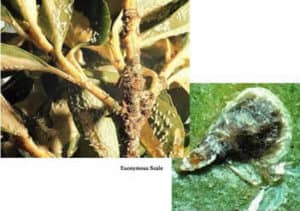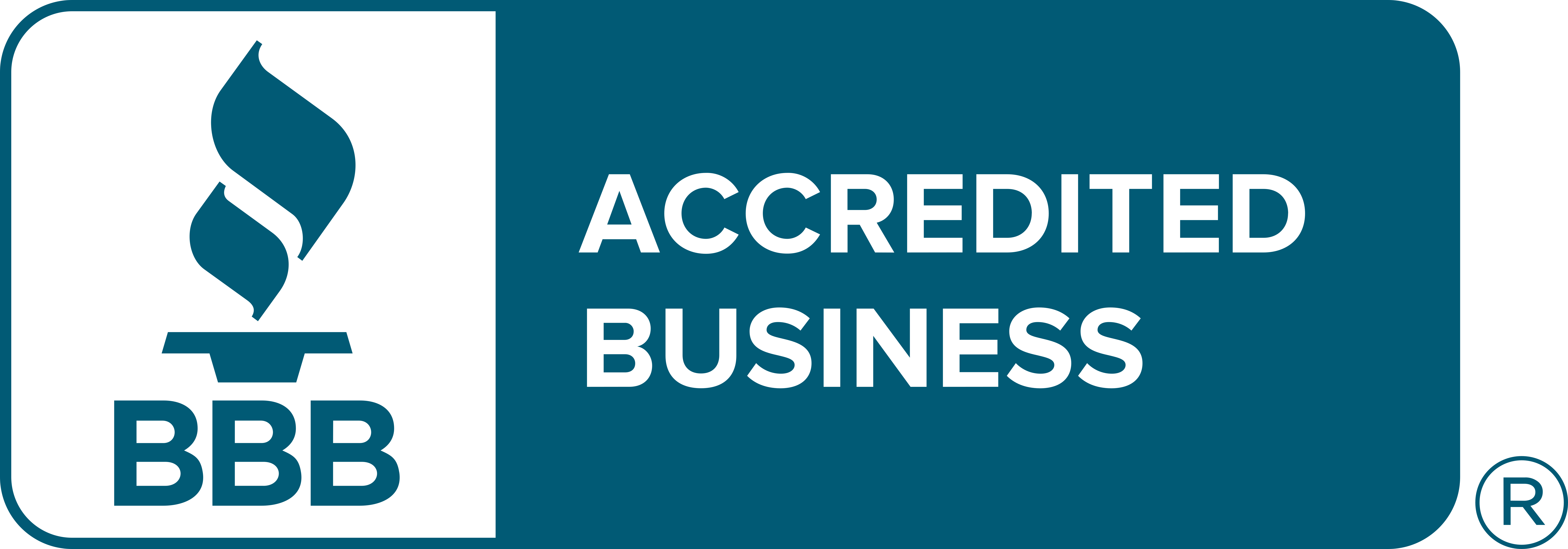 Euonymus scale most often affects euonymus, camellia, boxwood, bittersweet, daphne, Eugenia, English ivy, hibiscus, holly jasmine, privet, honeysuckle, olive and pachysandra. Heavy infestations are visible from some distance away.
Description: The females are about 1/16 inches long and have a dark brown to gray, somewhat pear-shaped body. The males are much smaller and white. They use their piercing-sucking mouthparts to feed on sap.
Symptoms: Moderately to heavily infested plants grow slowly, or not at all, and yellow spots can appear on the foliage. Eventually the leaves die as feeding continues. Death of branches or the entire plant can occur.
In spring, over-wintering females lay eggs that hatch in late May or early June. Crawlers move to leaves and stems and begin to feed on the plant juices. Maturing males prefer leaves and females congregate on stems.
Action: Prune heavily infested branches to the soil surface. Insecticide treatments can be effective when used during the crawler stage. Systemic insecticides, applied as a soil drench around the root zone of infested plants will provide some control for this pest.
Scales tend to thrive on stressed plants. By following a recommended fertility and water schedule you can promote plant health. Be careful not to over-fertilize, this favors scale buildup.
Thank you for reviewing this information. Schneider Tree Care is committed to preserving and enhancing the quality of your property through tree care education and services. We employ professionally trained and certified arborists who are available to meet with you for a consultation at no charge. If you have any questions or need additional information regarding the health of your trees, please contact us
Euonymus scale most often affects euonymus, camellia, boxwood, bittersweet, daphne, Eugenia, English ivy, hibiscus, holly jasmine, privet, honeysuckle, olive and pachysandra. Heavy infestations are visible from some distance away.
Description: The females are about 1/16 inches long and have a dark brown to gray, somewhat pear-shaped body. The males are much smaller and white. They use their piercing-sucking mouthparts to feed on sap.
Symptoms: Moderately to heavily infested plants grow slowly, or not at all, and yellow spots can appear on the foliage. Eventually the leaves die as feeding continues. Death of branches or the entire plant can occur.
In spring, over-wintering females lay eggs that hatch in late May or early June. Crawlers move to leaves and stems and begin to feed on the plant juices. Maturing males prefer leaves and females congregate on stems.
Action: Prune heavily infested branches to the soil surface. Insecticide treatments can be effective when used during the crawler stage. Systemic insecticides, applied as a soil drench around the root zone of infested plants will provide some control for this pest.
Scales tend to thrive on stressed plants. By following a recommended fertility and water schedule you can promote plant health. Be careful not to over-fertilize, this favors scale buildup.
Thank you for reviewing this information. Schneider Tree Care is committed to preserving and enhancing the quality of your property through tree care education and services. We employ professionally trained and certified arborists who are available to meet with you for a consultation at no charge. If you have any questions or need additional information regarding the health of your trees, please contact us 









